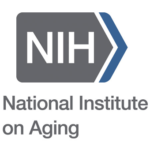
Photo by Katarzyna Grabowska on Unsplash
At Great Care in-home care services, we embrace every day knowing they provide opportunities to learn something new. As caregivers, learning about health updates and issues that commonly affect older populations help us become better providers.
November, which is National Alzheimer’s Disease Awareness Month, is the ideal time to learn more about this progressive disease with no cure that destroys memory and other important mental functions. According to the Alzheimer’s Association, the benefits of learning more about Alzheimer’s are important.
“You may experience a stronger connection to your emotions and identity,” the Association says. “Knowledge about Alzheimer’s can provide you the confidence to make important decisions about how you choose to live your life and plan for your future.”
Some basic facts the Alzheimer’s Association provides helps the general public understand the degenerative disease, including:
- Alzheimer’s is the most common cause of dementia, a general term for memory loss and other cognitive abilities serious enough to interfere with daily life.
- Alzheimer’s disease accounts for 60 percent to 80 percent of dementia cases.
- Alzheimer’s worsens over time. Alzheimer’s is a progressive disease, where dementia symptoms gradually worsen over a number of years.
- In its early stages, memory loss is mild, but with late-stage Alzheimer’s, individuals lose the ability to carry on a conversation and respond to their environment.
- Alzheimer’s is the sixth leading cause of death in the United States. On average, a person with Alzheimer’s lives four to eight years after diagnosis, but can live as long as 20 years, depending on other factors.
 The National Institute on Aging (NIA) reminds us that “scientists continue to unravel the complex brain changes involved in the onset and progression of Alzheimer’s disease.”
The National Institute on Aging (NIA) reminds us that “scientists continue to unravel the complex brain changes involved in the onset and progression of Alzheimer’s disease.”
Follow Us!